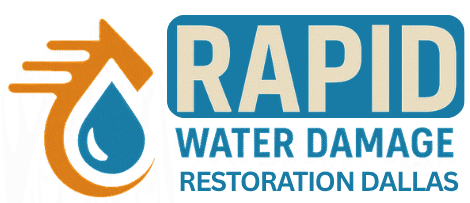Introduction
Water damage doesn’t always announce itself clearly. Often, what starts as a minor drip or leak can escalate into a serious situation requiring emergency water extraction. Understanding the various sources of water damage helps you spot issues early—and call for help before things spiral.
If you already see standing water or suspect hidden moisture, don’t wait. For immediate help, contact via Contact Us. Also, learn more about how extraction works on our Emergency Water Extraction main page.
Common Causes of Water Damage in Dallas
Burst and Leaking Pipes
- Aging pipes, corrosion, fluctuating temperatures—especially in uninsulated areas.
- Sudden bursts release large volumes of water quickly.
- Even slow leaks cause hidden damage over time.
Appliance Malfunctions
- Hoses, seals on dishwashers, washers, water heaters fail.
- Refrigerator ice makers leaking, overflow pans.
- Can spill water under cabinetry or behind walls.
Severe Weather & Storm Flooding
- Intense rainfall overwhelms drainage systems.
- Roof leaks, broken windows, water entering at ground level.
- Flash floods are more frequent in some parts of Dallas.
Sewer Backups
- When stormwater or debris overloads sewer lines.
- Black water intrusion—a serious hazard because of contamination.
- Rapid response required to extract and sanitize.
HVAC Condensation Issues
- Clogged condensate lines.
- Overflowing drain pans.
- Water can damage ceilings, walls, insulation.
When Emergency Water Extraction Becomes Essential
Here are signs that you need a professional to extract water immediately:
- Visible standing water on floors, carpets, or under cabinets.
- Moisture has spread into walls, ceilings, or subfloors (look for bulging, discoloration).
- Foul or musty odors developing.
- Water stains or sagging drywall.
- Mold beginning to appear.
- Electrical risks—outlets near water-soaked areas.
- Water damage from black or gray water (contaminated sources).
The Extraction Process You Can Count On
To understand what happens once you call for extraction help, here are the steps, similar to our service process:
- Initial Assessment & Safety Check
- Determine water source.
- Classify water type (clean, gray, black).
- Identify hazards (electricity, structural weaknesses).
- Extraction of Standing Water
- Use of industrial pumps, wet vacuums.
- Quick removal from visible surfaces.
- Detection & Monitoring of Hidden Moisture
- Thermal imaging & moisture sensors.
- Tracing moisture behind walls, under flooring.
- Drying & Dehumidification
- High-velocity air movers.
- Industrial dehumidifiers.
- Cleaning, Sanitizing, Odor Control
Preventing Water Damage Before It Happens
Prevention is the secret to avoiding major extraction jobs. Here are practical steps:
- Schedule plumbing inspections annually.
- Replace old hoses on appliances.
- Clean gutters, downspouts; ensure landscape grading drains away.
- Install water detection sensors near likely trouble spots.
- Know where your main water shut-off valve is and how to use it.
Why Professional Extraction Matters Over DIY
| DIY Risks | Professional Advantages |
|---|---|
| Missing hidden moisture | Professionals use thermal imaging, moisture meters |
| Inadequate drying → mold growth | Industrial drying & monitoring ensure full dryness |
| Poor handling of contaminated water | Proper sanitization for gray/black water sources |
| Temporarily masking odors | Odor removal targeting sources, not just smell masking |
Next Steps if You’re in Dallas with Water Damage
- Document damage — take photos, note what’s wet.
- Move things out of harm’s way if safe.
- Dry what you can temporarily (fans, towels) while waiting.
- Reach out for expert extraction via our Emergency Water Extraction service.
- Make contact via Contact Us to get help started fast.
Conclusion
Water damage can originate from many sources—and often escalates quickly. Recognizing those sources, acting fast, and choosing professional emergency water extraction services can save you time, money, and stress. Don’t let a small issue turn into a major disaster.
If standing water, leaks, or signs of moisture are present in your Dallas property, act now: learn more on the Emergency Water Extraction page and get in touch through Contact Us.



